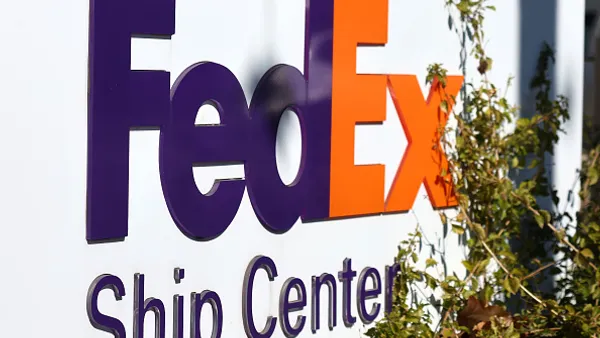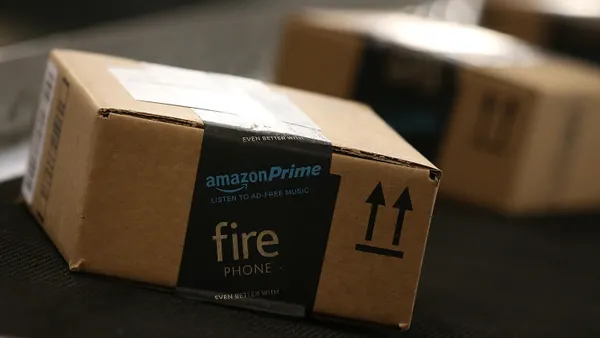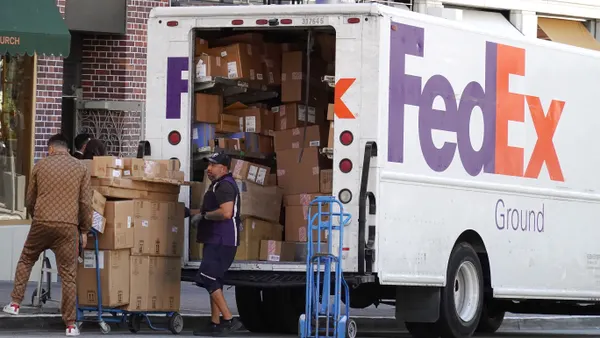Dive Brief:
- Ford has partnered with Agility Robotics to pilot Digit, a two-legged autonomous delivery robot that can carry up to 40 pounds and navigate up and down stairs, through your front yard to your door. Digit will be paired with autonomous delivery vehicles to test the feasibility of removing humans from the last-mile, and even last-yard, equation.
- "If we can free people up to focus less on the logistics of making deliveries, they can turn their time and effort to things that really need their attention," Vice President of Ford Research and Advanced Engineering and Chief Technology Officer Ken Washington wrote in a Medium post.
- This pilot is part of a broader collaboration between Ford, Walmart and Postmates to test autonomous food and consumer products delivery that launched in late 2018. Ford is providing the self-driving vehicles, leveraging Walmart's existing delivery customers, and using Postmates' last-mile delivery networks to fulfill orders.
Dive Insight:
Last-mile delivery is notoriously inefficient. In addition to the burden large volumes of parcels place on delivery chains, customizing drop-off routes between homes, apartment blocks, retail stores and offices can result in lost time, lower energy efficiency and more traffic congestion on busy streets.
As package volumes and the popularity of two-day (or faster) shipping have skyrocketed over the last decade, shippers and 3PLs are looking for ways to increase the speed and efficiency of at-home deliveries.
In recent years, drones, robots and autonomous vehicles have been hailed as potential solutions because they can be programmed to navigate environments that would otherwise be difficult or time consuming for an average delivery truck driver to reach.
To make this pilot more feasible, Digit is designed to fold itself up for easy storage while in the back of a self-driving delivery vehicle. As a result, a single delivery vehicle could make multiple deliveries from a single location, compared to a traditional mail truck that has to make single stops along a route.
According to Washington's post, the pairing of Digit with an autonomous vehicle has an additional advantage: Self-driving vehicles already have sensors and detailed mapping data that help them navigate their environment. "If it encounters an unexpected obstacle, it can send an image back to the vehicle and have the vehicle configure a solution," Washington wrote. "The car could even send that information into the cloud and request help from other systems to enable Digit to navigate, providing multiple levels of assistance that help keep the robot light and nimble."
Digit is just one of the autonomous delivery pilots in operation this year. Amazon and USPS are experimenting with autonomous trucks as well, and DHL has launched drone delivery services in China and Germany.













